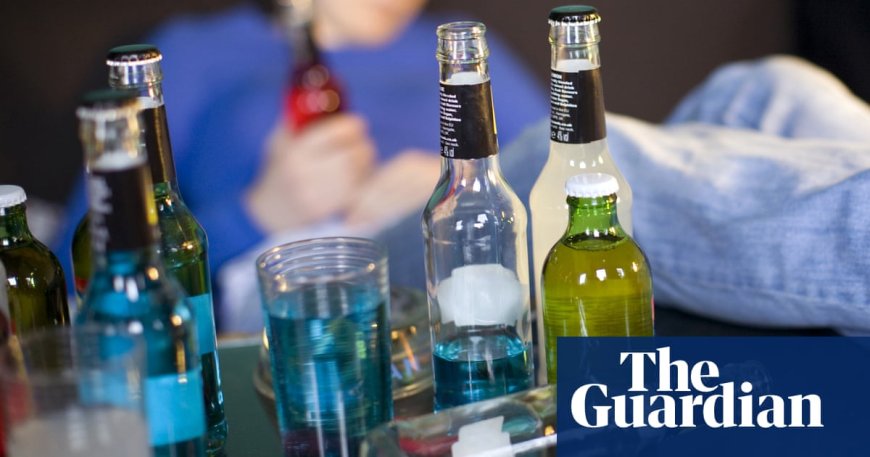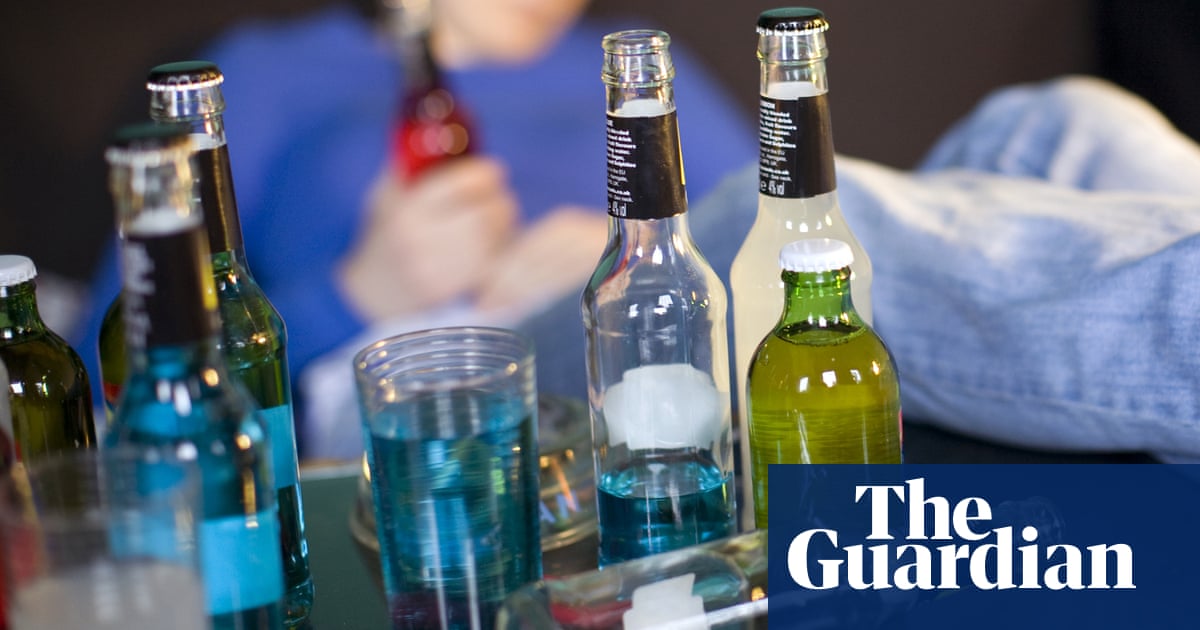Great Britain has worst rate of child alcohol consumption in world, report finds
Great Britain has worst rate of child alcohol consumption in world, report finds The Guardian

Report: Great Britain Has Highest Rate of Child Alcohol Abuse Worldwide

According to a report, Great Britain has the worst rate of child alcohol abuse worldwide, with more than half of children in England, Scotland, and Wales having consumed alcohol by the age of 13. The study, conducted by the World Health Organization (WHO), analyzed data from 280,000 children aged 11, 13, and 15 from 44 countries and regions, focusing on alcohol, cigarettes, and vape usage.
Key Findings
- Great Britain has a significant issue with underage alcohol abuse.
- By the age of 11, 35% of boys and 34% of girls in Great Britain had consumed alcohol.
- By the age of 13, 57% of girls and 50% of boys in England had consumed alcohol, the highest rate among the countries analyzed.
- More than half of girls (55%) and boys (56%) from higher-income families in England had consumed alcohol in their lifetime, compared to 50% of girls and 39% of boys from lower-income backgrounds.
- 40% of girls in England and Scotland had vaped before the age of 15, at a higher rate than countries like France and Germany.
- About 30% of girls aged 15 and 17% of boys of the same age had vaped in the past 30 days in England, surpassing rates in other countries.
Implications and Recommendations
Dr Hans Kluge, the WHO regional director for Europe, highlighted the serious public health threat posed by the widespread use of harmful substances among children. He emphasized the need to protect adolescents from the effects of toxic products and the influence of targeted online marketing. Dr Jo Inchley, the international coordinator for the study, expressed concern over the high rates of underage drinking and smoking in the UK and called for further investigation and action.
Addressing the Issue
Dr Katherine Severi, chief executive of the Institute of Alcohol Studies, emphasized that introducing children to moderate drinking does not promote safer drinking habits. The UK government acknowledged the damaging effects of smoking, vaping, and underage drinking on young people’s development. They highlighted their efforts to create a smoke-free generation through legislation that restricts the sale of tobacco products and regulates vapes.
The findings of this report underscore the urgent need to address the issue of underage alcohol abuse in Great Britain. It is crucial to prioritize the Sustainable Development Goals (SDGs), particularly Goal 3 (Good Health and Well-being) and Goal 4 (Quality Education), to ensure the well-being and future of children and adolescents.
SDGs, Targets, and Indicators
-
SDG 3: Good Health and Well-being
- Target 3.5: Strengthen the prevention and treatment of substance abuse, including narcotic drug abuse and harmful use of alcohol
- Indicator 3.5.1: Coverage of treatment interventions (pharmacological, psychosocial and rehabilitation and aftercare services) for substance use disorders
-
SDG 4: Quality Education
- Target 4.7: By 2030, ensure that all learners acquire the knowledge and skills needed to promote sustainable development, including, among others, through education for sustainable development and sustainable lifestyles, human rights, gender equality, promotion of a culture of peace and non-violence, global citizenship and appreciation of cultural diversity and of culture’s contribution to sustainable development
- Indicator 4.7.1: Extent to which (i) global citizenship education and (ii) education for sustainable development (including climate change education) are mainstreamed in (a) national education policies; (b) curricula; (c) teacher education; and (d) student assessment
Analysis
The article addresses the issue of child alcohol abuse in Great Britain and its impact on the health and well-being of children. This aligns with SDG 3: Good Health and Well-being. The specific target under this SDG that can be identified is Target 3.5, which aims to strengthen the prevention and treatment of substance abuse, including harmful use of alcohol. The article highlights the high rates of underage alcohol consumption among children in England, indicating the need for interventions and treatment programs to address this issue.
The article also touches upon the issue of education and its role in promoting sustainable development and sustainable lifestyles. This relates to SDG 4: Quality Education. The specific target under this SDG that can be identified is Target 4.7, which aims to ensure that all learners acquire the knowledge and skills needed to promote sustainable development. The article mentions the need to address the high levels of early initiation into drinking among boys and girls in England, indicating the importance of education for sustainable development and promoting healthier behaviors.
Based on the article’s content, there are no specific indicators mentioned or implied that can be used to measure progress towards the identified targets. However, indicators such as the coverage of treatment interventions for substance use disorders (Indicator 3.5.1) and the extent to which education for sustainable development is mainstreamed in national education policies, curricula, teacher education, and student assessment (Indicator 4.7.1) can be used to measure progress towards the targets.
SDGs, Targets, and Indicators
| SDGs | Targets | Indicators |
|---|---|---|
| SDG 3: Good Health and Well-being | Target 3.5: Strengthen the prevention and treatment of substance abuse, including narcotic drug abuse and harmful use of alcohol | Indicator 3.5.1: Coverage of treatment interventions (pharmacological, psychosocial and rehabilitation and aftercare services) for substance use disorders |
| SDG 4: Quality Education | Target 4.7: By 2030, ensure that all learners acquire the knowledge and skills needed to promote sustainable development, including, among others, through education for sustainable development and sustainable lifestyles | Indicator 4.7.1: Extent to which (i) global citizenship education and (ii) education for sustainable development (including climate change education) are mainstreamed in (a) national education policies; (b) curricula; (c) teacher education; and (d) student assessment |
Behold! This splendid article springs forth from the wellspring of knowledge, shaped by a wondrous proprietary AI technology that delved into a vast ocean of data, illuminating the path towards the Sustainable Development Goals. Remember that all rights are reserved by SDG Investors LLC, empowering us to champion progress together.
Source: theguardian.com

Join us, as fellow seekers of change, on a transformative journey at https://sdgtalks.ai/welcome, where you can become a member and actively contribute to shaping a brighter future.







